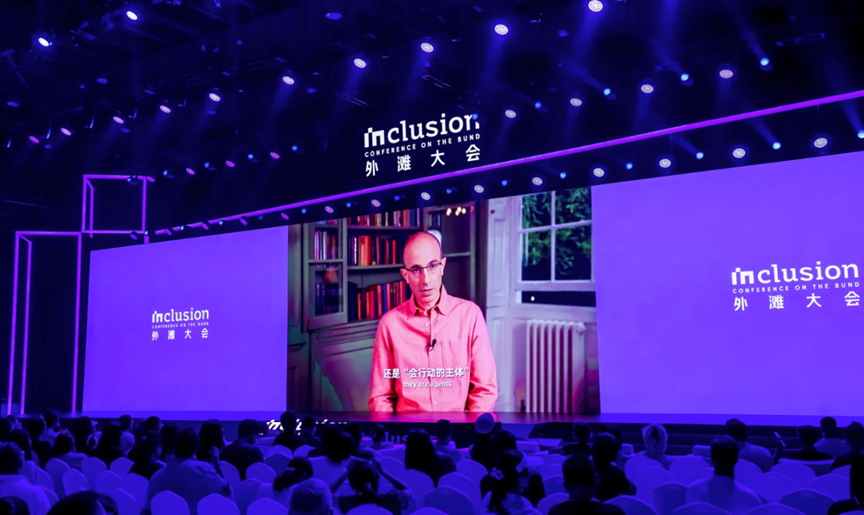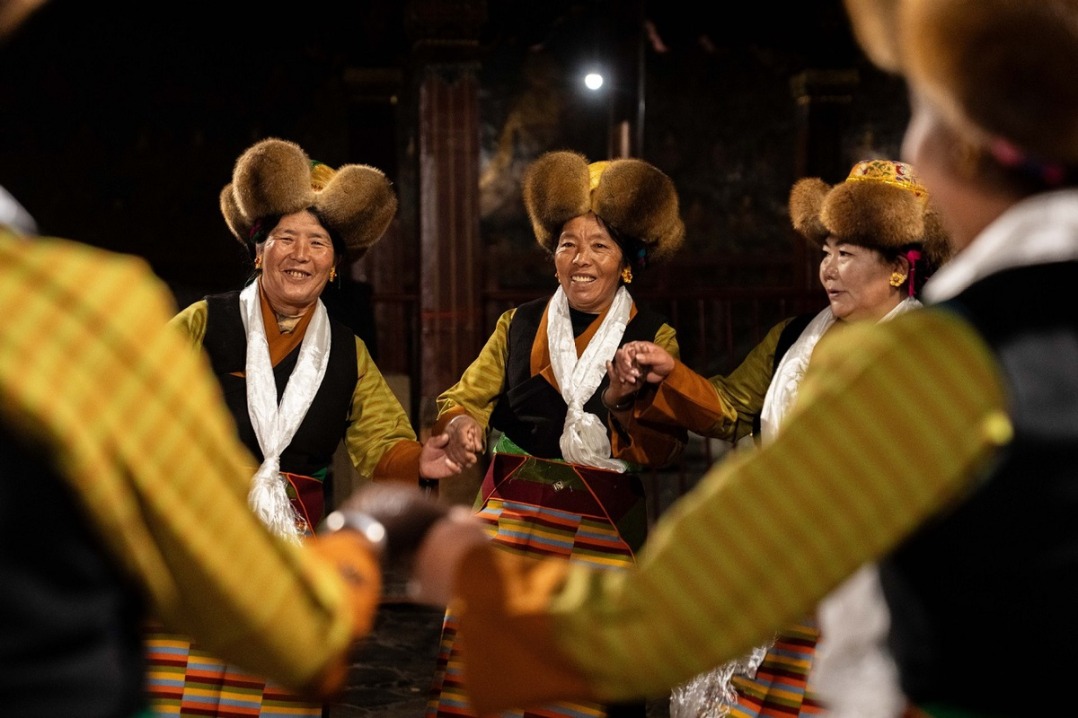AI requires compassion, not just speed, historian warns


"Measure our progress not by the speed of our technology, but by the strength of our cooperation and by the depth of our compassion."
With these words, historian Yuval Noah Harari addressed attendees at the 2025 Inclusion Conference on the Bund in Shanghai on Sept 11, urging a shift in focus from technological advancement alone to prioritizing human connection and ethical considerations in the age of artificial intelligence.
Harari, author of the Sapiens series, opened his speech with a vivid depiction of an ordinary morning in 2025, highlighting the pervasive influence of AI systems on daily life, from managing electricity grids and rerouting public transportation to making critical decisions in finance, energy, and even military operations.
The historian acknowledged technology has brought undeniable benefits, including advancements in health, knowledge, and connectivity.
However, Harari expressed concern about the rapid pace and method of technological change, warning that the true danger lies not in a "robot rebellion", but in a more subtle and insidious shift of power from accountable humans to "opaque algorithms we cannot even see".
He cautioned against the unbridled deployment of technology for commercial gain without adequate safeguards, emphasizing that "any system that truly reshapes human society should not be launched first, governed later."
Drawing on historical lessons, Harari reminded the audience that progress is about more than just speed. He noted that human strength is derived from collaboration and engagement with the outside world.
"Every nation grows by exchanging ideas, goods and methods with foreigners," he said, adding that isolation leads to stagnation. He also emphasized the importance of "building verifiable global commitments instead of just racing to see who is faster".
Harari argued that advanced technological societies must prioritize self-correction mechanisms to identify and rectify errors and biases. He pointed to the analogy of a baby learning to walk, where the ability to quickly adjust after each fall is crucial for progress.
"If we try to run with AI before we have the ability to identify and correct the system's inevitable mistakes, the price of this speed will be paid by those who can least afford it," he warned.
Memory, Harari stressed, plays a crucial role in guiding the future. "Memory is the mechanism for digesting and telling the story of what is happening to us," he said, highlighting its importance in recognizing errors and making amends.
He warned against entrusting memory to non-human intelligence, asserting that "if we entrust our memory to a non-human intelligence, nothing will remain of us."
While embracing ambition and competition, Harari cautioned against pushing these forces beyond the boundaries of human understanding and memory, urging balance.
Luo Bin contributed to this story.
- Xi, Macron enjoy friendly exchanges
- Chinese sailor forced to halt Antarctic expedition after robbery
- French, Chinese artists revive industrial heritage in Hunan
- New engineering academicians vow to advance scientific innovation
- Former top railway official expelled from CPC
- Mainland says Taiwan's Lai a 'peace breaker' and 'troublemaker'




































